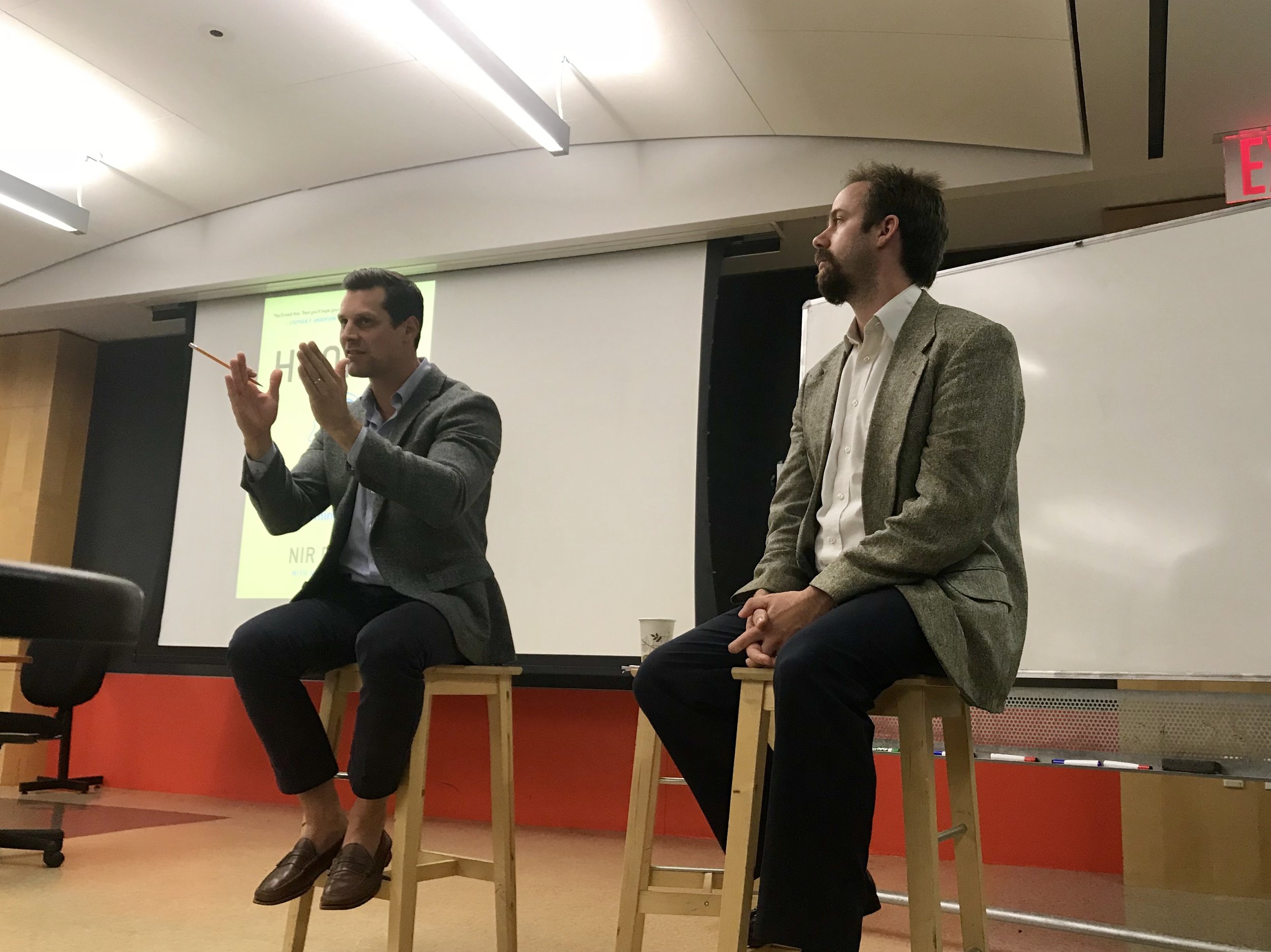How Humans Can Compete with Technology in the Work Field
|| Photo credit to Frank Chamaki @https://unsplash.com/@franki
Executive Vice President of The King’s College, Brian Brenberg and Dr. Paul Mueller, assistant Professor of Economics, held an “Off-The-Record” event on September 25th, in the City Room to discuss technology in the white collared workplace.
Over thirty years ago, the common view of robots sprung from narratives such as “Terminator” and “Blade Runner”, as machines of evil intent and destruction.
Mueller offered a different perspective regarding the innovation and introduction of robots in the workforce saying, “We should look at automation as a blessing. It is taking people out of these dangerous, dehumanizing jobs.”
Automated robots have already taken away jobs on a blue collar level. In an effort to cut costs, many factories and warehouses have almost become void of humans.
“There used to be a clear relation: if you wanted to make more stuff, you would hire more people,” Brenberg said.
Brenburg went on to relate the release of his favorite car, the 1978 Corvette, to the automizing of factory and warehouse jobs. The year the car was released became a pivotal year for General Motors (GM). GM, previously the largest employer in the US, spent the next four years growing as a business, yet decreasing in the number of workers it employed.
Brenberg and Mueller shifted the conversation to white collar jobs.
Professor Brenberg (left) and Professor Mueller (right) at the Off the Record Lecture || Picture Credits: Samantha Kelly
“Alexa is one of the best white collared workers in the world,” Brenberg said.
He pointed out ways in which she outperforms humans. Alexa is not limited to an eight hour work day, she will never file a workman's compensation report, and she does not require vacation or sick days. She is the perfect employee.
Brenburg is concerned by this and Mueller echoed that by saying, “We should not be concerned about how much it’s happening, but how quickly it’s happening.”
Most people are aware of the implications on blue collar work that Artificial Intelligence (A.I.) has had, but Mueller points out that places like the New York Stock Exchange are growing in wealth, yet there are fewer traders on the floor. A.I. is capable of trading faster and more effectively than humans.
New York Stock Exchange on the corner of Broad Street and Wall Street. || Picture Credits: Samantha Kelly
The shift has been happening at increasing speeds with no end in sight. Mueller reminded the audience that historically people were not particularly pleased with the invention of the printing press. Humans rarely appreciate technological advances when there is a fear it will take their jobs.
As Mueller said,“Job security is a thing of the past.”
Despite this assertion, both Mueller and Brenberg hold an optimistic views concerning the current technological trend. They share the belief that technology is opening avenues for people and robots to work complementary with one another.
While robots and A.I. seem to be robbing hardworking humans of their jobs, there are indeed things which robots are incapable of doing. Brenberg believes that robots will never be able to appeal to the human soul. Humans need connection with other humans.
|| Photo credit to Andy Kelly https://unsplash.com/@askkell
As evidence to this claim, Brenberg shows how recent entrepreneurs have changed the way basic businesses are run by using an example of gyms.
Twenty years ago, gyms were simply large buildings meant for individual physical enhancement. Now, gyms have become vastly diverse by targeting more than just the physical, they are targeting the soul.
Mueller does not believe that changes in these industries are results of people always wanting the best for fellow humans. But, he does believe these entrepreneurs are onto something from an economic standpoint.
“The human comparative advantage is relational,” Mueller said.
For humans to make it in this world where they are now competing with robots, they must focus their entrepreneurial energy toward being creative and investing in relationships with one another. Although lots of jobs have been lost, there are now new jobs that did not even exist 30 years ago.
“We shouldn’t write off technology just yet,” Mueller concluded.
Professor Brenberg and Dr. Mueller will be holding another “Off The Record” event to discuss economic policies on October 23rd.




